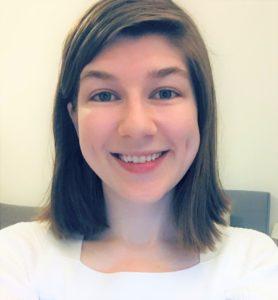
It will be news to no one that psychedelics are peculiar little molecules. Their extreme sensitivity to context – “set and setting” – is only one of their strange characteristics. But it is only recently that psychedelics have been used in contexts that are not specifically designed to support mystical and spiritual-type experiences. Most societies that have integrated psychedelics into their way of life have used them in religious rites, in contrast to the secular psychotherapy or recreation surrounding psychedelic use in the modern Western world.1
This is not an accident. Psychedelics have a propensity for causing “mystical-type” experiences: highly meaningful, personally important events that may or may not be interpreted within a religious framework.2 Sometimes—even with startling regularity3—psychedelics make people feel like they have met some kind of mystical being. And of course, this also happens without drugs. Many religious people can think of at least one time in their lives when they felt they had an encounter with a god, angel, demon, or other being from their particular belief system.4
The meeting of hard science and drugs which reliably cause these types of “encounters” is an interesting project. Why does the brain generate these types of experiences at all – and are they different when drugs are involved? If not, what does that mean for our understanding of psychedelics and their place in mental healthcare?
Spot the Difference
In a detailed survey, researchers at Johns Hopkins University (JHU) asked over 4,000 people to describe a memorable experience in which they felt like they encountered a mystical being.5 They phrased this question very broadly to include people of all or no religious beliefs, including those who did not consider the being to be real. The goal was to answer a simple question: how phenomenologically similar are encounter experiences involving psychedelics and such experiences which naturally occur without them?
Psychedelic-induced encounters differed from spontaneous ones in a few, mostly unsurprising ways. They came with more changes in sensory perception, as well as the altered perception of time and space. People described them as more personally insightful, but also more mentally challenging. And the mystical entity involved was interpreted differently: those who had taken psychedelics more often believed that they had encountered “Ultimate Reality,” whereas the non-drug group was more likely to call it “God” and believe it would grant requests.
Common Ground
But although psychedelic-induced experiences were more colorful and intense, the two types of encounters seemed to have far more in common than not.5
In both groups in the JHU survey, people described their encounters as highly meaningful experiences that catalyzed positive changes in their lives, and psychedelic-induced encounters were no more or less meaningful, significant, or positive than natural ones. Everyone was equally likely to describe their encounter as “more real than ordinary reality,” as well as highly emotional. Sometimes people felt like the entity they met had a message for them, and this happened equally often in both groups. Across the board, these experiences tended to produce a more compassionate understanding of other people’s beliefs and a renewed interest in spiritual life. And although people used different names for what they encountered, the difference between “God” and “Ultimate Reality” may not go much deeper than the name. Participants were equally likely to believe that both were eternal, omniscient, conscious, and existing in some other dimension or reality.
One final piece of evidence involves a survey called Mystical Experience Questionnaire, or MEQ. The MEQ was originally developed to evaluate people’s experiences with hallucinogens, so unsurprisingly, the psychedelic group scored higher on it. In that group, 64% of encounters fulfilled the MEQ’s criteria for a “complete” mystical experience. However, a full 43% of people in the non-drug group also had a complete mystical experience. When people who have had spontaneous, drug-free encounters score that highly on a hallucinogen questionnaire, then natural and drug-induced encounters must have something important in common.
A Rose By Any Other Name
All in all, encounters with and without drugs had similar phenomenology and consequences, and people interpreted them in similar ways. This led the study authors to conclude that in the ways that matter, they are much the same thing.5 Psychedelics induce the same kinds of subjective “encounters” with gods, angels, or other beings which also occur naturally.
There is a saying about substances and the brain: whatever the brain does on drugs, it is theoretically capable of without them.6 The receptors are there even if the drugs are not. Whatever psychedelics do to trigger spiritual experiences, that same mechanism may be activated by other things—extreme stress, moving music, spiritual practices—albeit far less reliably. There could be a neural circuit responsible for the feeling of a “presence,” whether of another person or something else, that is more likely to be triggered in particular situations.
But thinking further: what do these types of encounters mean for people, and for psychedelic therapy? One could easily wonder what effect they might have on someone’s religious beliefs. In the study, there was some drift away from both atheism and major monotheistic religions after both types of encounter experiences, although the authors urge people not to over-interpret this. Professor Matthew Johnson and Dr. David Yaden, the former a co-author of the study, maintain that there is no convincing evidence that psychedelics can change one’s religious affiliation.7 People are most likely to interpret mystical experiences in a way that complements their existing beliefs, and there is no evidence that psychedelics can convert people into or out of a religion against their will.
And indeed, perhaps the biggest strength of psychedelic therapy is its ability to reliably induce meaningful experiences – whether they involve an entity or not.8 Meaning can act as an antidote to suffering, and it is not always easy for people to find; though many survey respondents clearly had meaningful encounter experiences without drugs, such spontaneous graces don’t always appear to the people who could benefit from them.9 The high rates of depression and anxiety in the modern world have even been interpreted by some as a crisis of meaning.10 If that is so, a drug that can reliably cause the same types of meaningful experiences as occur naturally may be a lifeline for patients who would otherwise not have access to them.

Absolutely fascinating,
A rose by another name … Love this!